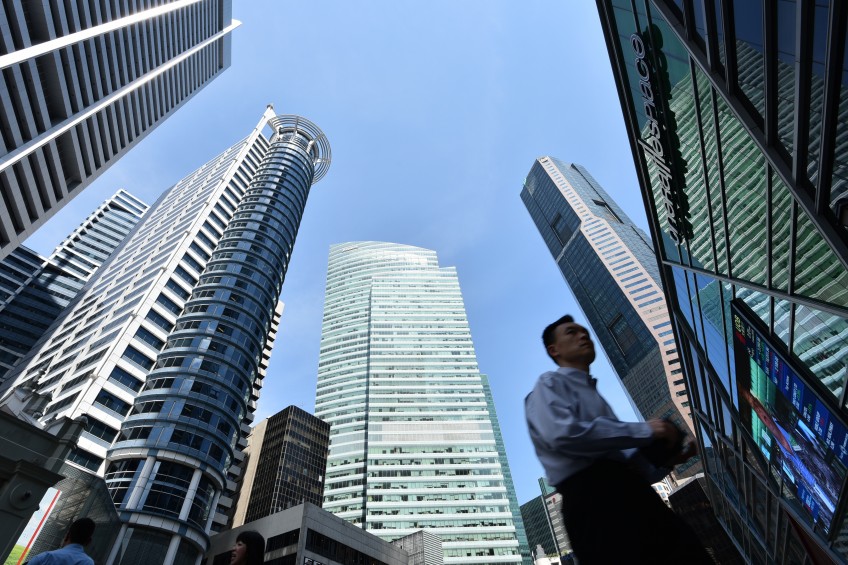Singapore narrowly avoids technical recession

SINGAPORE - Trade-dependent Singapore narrowly avoided a technical recession in the third quarter, boosted by growth in services and a smaller contraction in manufacturing, government data showed Wednesday.
The outlook remained subdued, however, as an economic slump in key market China is hurting demand for exports from its Asian neighbours.
Singapore's gross domestic product (GDP) expanded 1.4 per cent year-on-year in the three months to September, slowing from 2.0 per cent growth in the June quarter, advance estimates from the trade ministry showed.
From the previous three months, GDP grew 0.1 per cent, defying analysts prediction for another quarter-on-quarter contraction, which would have pushed the economy into a technical recession. GDP had already shrunk 2.5 per cent quarter-on-quarter in June.
A technical recession is defined as two consecutive quarters of quarter-on-quarter fall in GDP.
The advance GDP estimates however are based on only two months of data - July and August - and adjustments could be made when the final numbers are calculated with the September figures.
Singapore's manufacturing sector, a pillar for the trade-sensitive economy, fell 3.6 per cent from the previous quarter but the pace of the decline moderated sharply from the 17.4 per cent shrinkage in June.
Growth in services improved marginally, but construction turned negative.
"Singapore narrowly averted a technical recession with third quarter GDP showing a marginal gain due to positive quarterly growth in services, which offset contraction in manufacturing and construction," said Rajiv Biswas, Asia-Pacific chief economist at IHS Global Insight.
"However this marginal increase in Q3 GDP quarter-on-quarter is an advance estimate, and weak September data for manufacturing output and exports could still push Singapore into technical recession once final Q3 GDP data is released," he told AFP.
In a separate move, the Monetary Authority of Singapore (MAS) said it was slowing the pace of the appreciation of the Singapore dollar as it eased monetary policy in a bid to boost exports.
A weaker Singapore dollar makes the country's exports cheaper and more competitive in the international market.
"The Singapore economy is projected to expand at a modest pace for the rest of 2015 and in 2016, with the uplift from the firmer US economy tempered by weaker growth prospects in the region," MAS said.